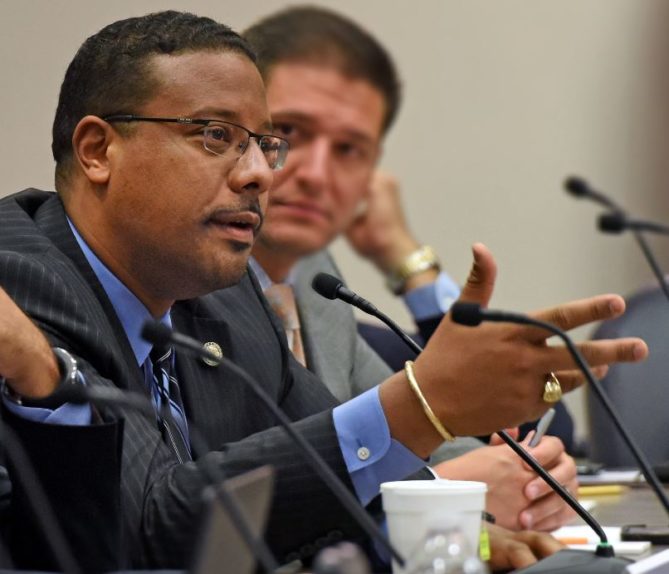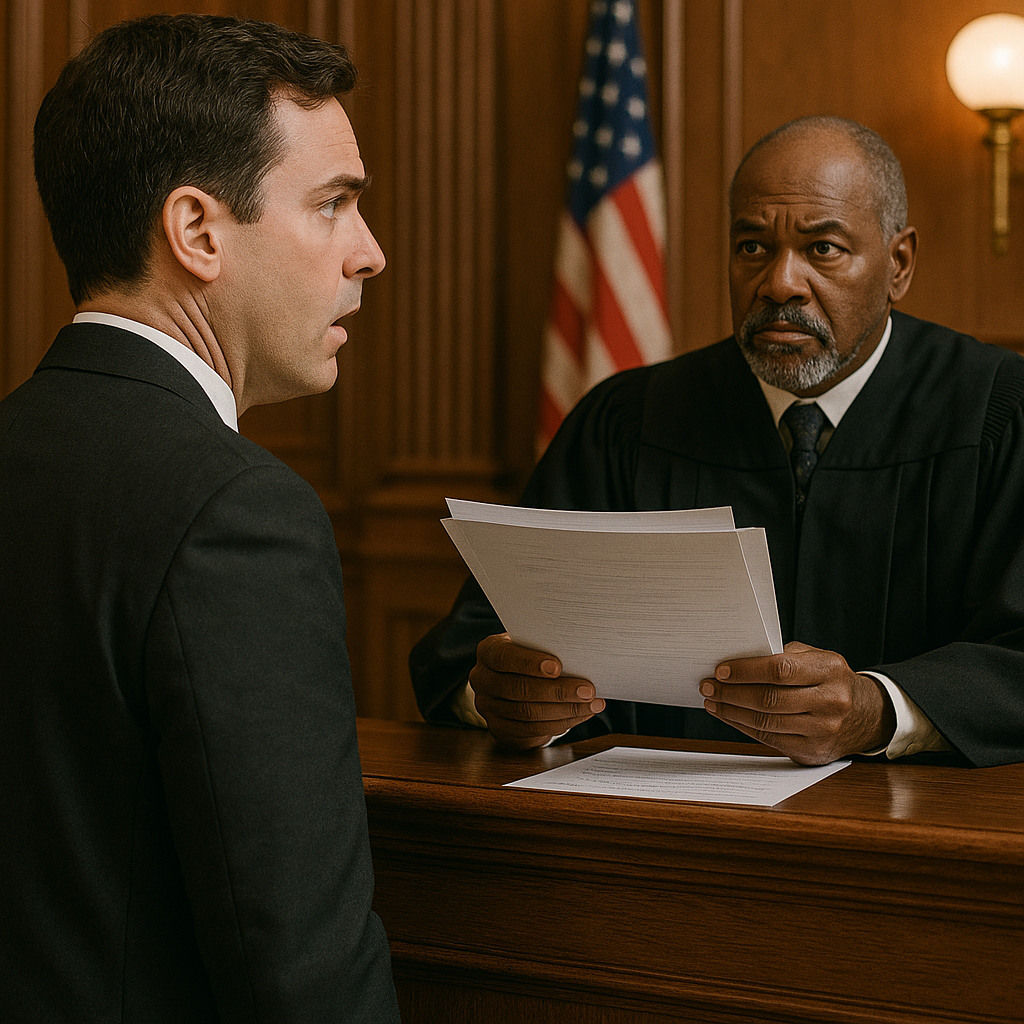
House Bill 911, effective January 1, 2018, was filed by Representative Sean Shaw and enacted by the Florida Legislature to amend Fla. Stat. § 626.854, which protects policyholders through the regulation of public adjusters. Chip Merlin discussed this new law in detail in his post on July 2, 2017. In requiring public adjusters to be licensed by the State of Florida and defining the scope of their services, the Florida Legislature also excluded the growing practice of unlicensed public adjusting and the unauthorized practice of law. By defining what a licensed public adjuster can do for policyholders, the amended law notifies contractors, vendors, accountants, and others known after a catastrophe to unlawfully solicit business to act in the scope of a public adjuster. One service to policyholders that was recently questioned was whether an appraiser is required to be licensed in Florida. In the answer to this question, many others will find the answer to other services related to public adjusters, which do require a license.
The appraisal provision in property insurance policies generally require a fair and competent or disinterested appraiser, with some policies defining those terms. But, is that all that is required, and how far can the appraiser go in determining the amount of damages? Does the appraiser also determine the cause of the damage in calculating the amount of covered damages? To answer these questions, many states have developed statutory law governing insurance and a body of caselaw grounded in fair notions of public policy.
Many states do not directly regulate property insurance appraisers through a specific licensing statute. Florida legislators made several attempts at appraiser licensing before a bill introduced by House Representative Sean Shaw, now a candidate for Florida Attorney General, succeeded in accomplishing this in House Bill 911, where the Legislature found “that it is necessary for the protection of the public to regulate public insurance adjusters and to prevent the unauthorized practice of law.”1
States vary in the scope of appraisal, some allow appraisers and public adjusters to negotiate claims on behalf of policyholders; others find that negotiation of the claim or settlement is in the purview of law and an appraiser or public adjuster attempting to negotiate or settle the claim would be engaging in the unauthorized practice of law. Further, most states now have statutes regulating the practice of public adjusting, including statutes regarding licensing requirements and contract provisions with policyholders. But where do appraisers fit in? Sometimes the answer may be in the who by statute can present, investigate, and adjust the policyholder’s claim.
Florida’s recently amended adjuster statutes,2 effective January 1, 2018, have further clarified the who:
Section 1. Subsection (1) of section 626.015, Florida Statutes, is amended to read:
626.015 Definitions.—As used in this part:
(1) “Adjuster” means a public adjuster as defined in s. 626.854
, a public adjuster apprentice as defined in s. 626.8541,or an all-lines adjuster as defined in s. 626.8548.Section 2. Subsections (7) through (19) of section 626.854, Florida Statutes, are renumbered as subsections (6) through (18), respectively, subsection (1) and present subsections (6), (7), (11), (18), and (19) are amended, and a new subsection (19) is added to that section, to read:
(1) A “public adjuster” is any person, except a duly licensed attorney at law as exempted under s. 626.860, who, for money, commission, or any other thing of value, directly or indirectly prepares, completes, or files an insurance claim
formfor an insured or third-party claimant or who, for money, commission, or any other thing of value, acts on behalf of, or aids an insured or third-party claimant in negotiating for or effecting the settlement of a claim or claims for loss or damage covered by an insurance contract or who advertises for employment as an adjuster of such claims. The term also includes any person who, for money, commission, or any other thing of value, directly or indirectly solicits, investigates, or adjusts such claims on behalf of a public adjuster, an insured, or a third-party claimant. The term does not include a person who photographs or inventories damaged personal property or business personal property or a person performing duties under another professional license, if such person does not otherwise solicit, adjust, investigate, or negotiate for or attempt to effect the settlement of a claim.* * * *
(19) Except as otherwise provided in this chapter, no person, except an attorney at law or a public adjuster, may for money, commission, or any other thing of value, directly or indirectly:
(a) Prepare, complete, or file an insurance claim for an insured or a third-party claimant;
(b) Act on behalf of or aid an insured or a third-party claimant in negotiating for or effecting the settlement of a claim for loss or damage covered by an insurance contract;
(c) Advertise for employment as a public adjuster; or
(d) Solicit, investigate, or adjust a claim on behalf of a public adjuster, an insured, or a third-party claimant.Section 4. Section 626.8548, Florida Statutes, is amended to read:
626.8548 “All-lines adjuster” defined.—An “all-lines adjuster” is a person who, for money, commission, or any other thing of value, directly or indirectly
is self-employed or employed by an insurer, a wholly owned subsidiary of an insurer, or an independent adjusting firm or other independent adjuster, and whoundertakes on behalf of a public adjuster or an insureror other insurers under common control or ownershipto ascertain and determine the amount of any claim, loss, or damage payable under an insurance contract or undertakes to effect settlement of such claim, loss, or damage. The term also includes any person who, for money, commission, or any other thing of value, directly or indirectly solicits claims on behalf of a public adjuster, but does not include a paid spokesperson used as part of a written or an electronic advertisement or a person who photographs or inventories damaged personal property or business personal property if such person does not otherwise adjust, investigate, or negotiate for or attempt to effect the settlement of a claim. The term does not apply to life insurance or annuity contracts.Section 6. Subsection (3) of section 626.8584, Florida Statutes, is amended to read:
626.8584 “Nonresident all-lines adjuster” defined.—A “nonresident all-lines adjuster” means a person who:
(3) Is licensed as an all-lines adjuster and self-appointed or appointed and employed or contracted by an independent adjusting firm or other independent adjuster, by an insurer admitted to do business in this state or a wholly owned subsidiary of an insurer admitted to do business in this state, or by a public adjuster or a public adjusting firm
other insurers under the common control or ownership of such insurer.Section 8. Subsection (3) of section 626.864, Florida Statutes, is amended to read:
626.864 Adjuster license types.—
(3) An all-lines adjuster may be appointed as an independent adjuster, public adjuster apprentice, or company employee adjuster, but not more than one of these
bothconcurrently.
The amended statutes have made clear that the who is only a public adjuster and/or an attorney at law that may for money, commission, or any other thing of value, directly or indirectly, prepare, complete or file and claim for an insured; negotiate or effect the settlement of a claim; or investigate, or adjust a claim on behalf of the insured. Since the task of an appraiser is to investigate, adjust, prepare or complete the claim, and negotiate or effect the settlement of a claim, an appraiser that is not a licensed adjuster may regrettably be found to be adjusting without a license or engaging in the unauthorized practice of law.
Under Fla. Stat. § 626.8738, public adjusting without a license in the State of Florida is a third-degree felony:
626.8738 Penalty for violation.—In addition to any other remedy imposed pursuant to this code, any person who acts as a resident or nonresident public adjuster or holds himself or herself out to be a public adjuster to adjust claims in this state, without being licensed by the department as a public adjuster and appointed as a public adjuster, commits a felony of the third degree, punishable as provided in s. 775.082, s. 775.083, or s. 775.084. Each act in violation of this section constitutes a separate offense.
Florida has been a front runner in protecting its policyholders. The need for setting a standard for well-trained and qualified policyholder advocates to aid policyholders in presenting, investigating, and adjusting their claims to level the playing field with the insurance companies’ adjusters was recognized by the Florida State Legislators. Public policy demands that policyholders are protected from those that would seek to prey upon their misfortune and provide less that honorable services in the adjustment of their insurance claim. Well done, Sean.
_______________________________
1 House Bill No. 911, Chapter 2017-147, Section 2. Subsections (7) through (19) of section 626.854, Florida Statutes, are renumbered as subsections (6) through (18), respectively, subsection (1) and present subsections (6), (7), (11), (18), and (19) are amended, and a new subsection (19) is added to that section, to read: 626.854 “Public adjuster” defined; prohibitions.—The Legislature finds that it is necessary for the protection of the public to regulate public insurance adjusters and to prevent the unauthorized practice of law.
2 Underlines are added text; strikes are deleted text.




